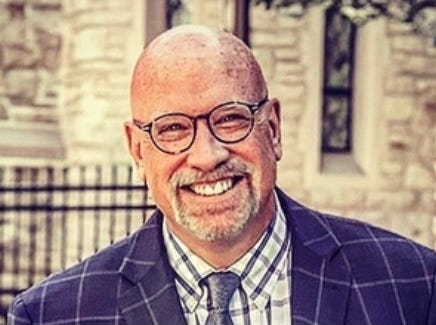My dear brothers and sisters in Christ,
Peace be with you. Today, I want to speak to you about something at the very heart of the Christian life—formation, specifically the formation of your faith through study, reflection, and obedience to God’s Word. As Jeremiah 7:23 reminds us:
“Walk in all the ways that I command you, so that you may prosper.”
This is not a casual suggestion. It is the voice of God, speaking through His prophet, calling us to know His ways and walk in them—not just so that we survive, but so that we flourish, prosper, and find the peace that only He can give.
Yet how can we walk in the ways of the Lord if we do not know them?
How can we follow His commandments if we have not taken the time to understand them deeply—through Scripture, tradition, and prayer?
This is why formation—particularly formation in the faith—is not optional for the Christian. It is vital.
1. The Command to Know God: A Lifelong Journey
The first step toward formation is the understanding that faith is not static. It is a journey, a continual conversion of heart and mind.
Proverbs 4:7 says:
“The beginning of wisdom is this: Get wisdom. Though it cost all you have, get understanding.”
The pursuit of understanding—especially of the things of God—should be central to the life of every believer. This isn’t just a call for theologians, priests, or religious. It’s a call for you, for every layman and woman, for every mother, father, worker, and student.
The Lord doesn’t ask for part-time disciples. He asks for people willing to be transformed. And transformation begins with knowledge—with understanding His Word, His Church, and His commands.
2. The Wisdom of the Early Church Fathers: Our Guides in the Journey
When we talk about formation, we often focus on Scripture—and rightly so. But the Early Church Fathers are among the most important teachers in our tradition. They were disciples of the apostles and the next generations who interpreted Scripture, fought heresy, and laid the groundwork for the Church’s theology, liturgy, and morality.
St. Athanasius, for example, famously said:
“The holy and inspired Scriptures are sufficient for the preaching of the truth.”
But he also emphasized that right interpretation was essential—and that’s where the Fathers serve us.
They are not just theologians. They are spiritual fathers guiding us toward a deeper love of Christ.
Let’s consider a few of them.
3. St. Ignatius of Antioch: Faith and the Eucharist
St. Ignatius, a disciple of the Apostle John, wrote letters on his way to martyrdom in Rome around 107 A.D. In his letter to the Smyrnaeans, he wrote:
“Take note of those who hold heterodox opinions… They abstain from the Eucharist and from prayer because they do not confess that the Eucharist is the flesh of our Savior Jesus Christ.”
For Ignatius, faith and formation were rooted in the truth of the Incarnation and the Real Presence in the Eucharist. He knew that right belief led to right worship—and right worship formed holy lives.
Formation, then, means learning to understand the mysteries we celebrate every Sunday. Are we truly educating ourselves on the meaning of the Mass, the Eucharist, and the sacraments? Or are we drifting along with only a surface-level understanding?
4. St. Irenaeus of Lyons: Knowing God through Scripture and Tradition
St. Irenaeus, writing in the late 2nd century, was one of the first great theologians to emphasize the unity of Scripture and Tradition. He said:
“The glory of God is man fully alive; but the life of man is the vision of God.”
To be “fully alive” is not merely to exist—it is to know God, to “see” Him through prayer, Scripture, and the teaching of the Church.
Irenaeus fought against the Gnostics, who claimed to have hidden knowledge. He reminded the Church that true formation is not about secret knowledge but the public, apostolic teaching handed down from Christ through the bishops.
So when we form ourselves in the faith, we are not inventing something new—we are receiving something ancient, beautiful, and true.
5. St. Augustine: Formation as the Restless Search for God
Perhaps no Church Father speaks more powerfully about the interior journey of faith than St. Augustine.
In his Confessions, he famously says:
“You have made us for Yourself, O Lord, and our hearts are restless until they rest in You.”
Augustine’s journey from confusion to conviction, from sin to sanctity, is a model for every Christian. He searched in the wrong places—philosophy, pleasure, ambition—but ultimately found truth in the Word of God and the teaching of the Church.
He studied, he wept, he wrestled—and he came to believe.
Formation requires that same honesty. Are we ready to wrestle with our doubts, to study the teachings we don’t understand, to search the Scriptures not just for comfort but for truth?
Psalm 119:105 says:
“Your word is a lamp for my feet, a light on my path.”
Augustine knew that the Word lights our path, but only if we are willing to walk in its light.
6. Walking in All His Ways: What Does It Mean?
Let’s return to our core Scripture, Jeremiah 7:23:
“Walk in all the ways that I command you, so that you may prosper.”
This isn’t merely about avoiding sin or following rules. It’s about a way of life, a whole way of seeing and being.
The Hebrew word for “walk” here is halak, which implies daily conduct—the rhythm and direction of your life.
To walk in God’s ways means to:
Study His Word (Psalm 1:2: “But his delight is in the law of the Lord…”)
Pray daily and with devotion (1 Thessalonians 5:17: “Pray without ceasing”)
Receive the sacraments frequently (John 6:53: “Unless you eat the flesh of the Son of Man…”)
Live with humility, justice, and mercy (Micah 6:8)
Formation is the process by which these ways become second nature—not because of habit alone, but because of love.
7. Formation in the Family: A Sacred Duty
Let’s not forget that formation begins in the home. In Deuteronomy 6:6–7, God commands:
“These words that I command you today shall be on your heart. You shall teach them diligently to your children…”
The Early Church Fathers were deeply concerned with catechesis, especially within families. The domestic church—the family—is the first school of virtue, the first seminary, the first place where children learn about God.
Parents: are you forming yourselves so that you can form your children?
Because if you don’t—the world will.
And the world is not neutral.
St. John Chrysostom once wrote:
“Let everything take second place to our care of our children, our bringing them up in the discipline and instruction of the Lord.”
Formation is not optional. It is a battle for souls.
8. Practical Steps for Formation Today
So how do we begin—or renew—our journey of formation?
Here are some practical, actionable steps:
Read the Scriptures daily, starting with the Gospels and Psalms.
Study the Catechism of the Catholic Church—one paragraph a day.
Learn from the Early Church Fathers—begin with short writings by Ignatius, Polycarp, or Augustine.
Attend Bible studies or form small faith groups rooted in truth.
Receive the Sacraments frequently, especially the Eucharist and Confession.
Pray the Liturgy of the Hours or simply commit to morning and evening prayer.
Incorporate Proverbs into family prayer—short, wise sayings that nourish the soul.
Read Catholic books that are faithful to Church teaching—not all that is labeled “Christian” is true.
Teach your children—don’t outsource their spiritual formation.
Live what you learn—formation is incomplete without action.
9. Why Formation Matters Now More Than Ever
We live in a time of confusion, a time when truth is under attack, and the Church is often misunderstood—even by those within her.
We must be formed not just to defend the faith, but to live it with clarity, charity, and conviction.
Proverbs 3:5-6 says:
“Trust in the Lord with all your heart, and lean not on your own understanding; in all your ways submit to Him, and He will make your paths straight.”
Formation teaches us not to lean on our own understanding, but to trust in the wisdom of the Church, the voice of the Fathers, and the truth of God’s Word.
Conclusion: The Call to Walk and Prosper
To walk in the ways of the Lord, as Jeremiah says, is to embrace a life of ongoing formation, of continually turning our hearts to God, of seeking truth even when it challenges us.
As Psalm 1:1–3 says:
“Blessed is the man who walks not in the counsel of the wicked… but his delight is in the law of the Lord… He is like a tree planted by streams of water…”
If we plant ourselves in the Word, the teachings of the Church, the writings of the Fathers—we will prosper.
We will bear fruit in our lives, in our families, and in our communities.
Let us take up the call to educate ourselves in the faith, not as an intellectual exercise, but as a journey of the heart—a journey toward Christ, who is the Way, the Truth, and the Life.
Amen.
Welcome to the St Michael’s Group! In a world facing a decline in religious belief and an increase in moral confusion, the need to reignite our faith has never been more critical. Religion’s capacity to offer meaning, foster ethical behavior, and build cohesive communities is vital for countering the spread of spiritual apathy and the influence of evil. By renewing our commitment to faith, we can combat the forces that seek to divide and weaken us. Reigniting our faith lives, therefore, is not just a personal endeavor but a collective responsibility. It is essential for preserving the moral and spiritual fabric of our society, ensuring that love, compassion, and justice continue to be the guiding principles of human existence.
This is why I started the St. Michael’s Group Substack and Podcast. Join us today stmichaelsgroup.substack.com and let’s start a movement of reigniting faith, family, and formation back into our lives.
This is Dr. Currie Myers. I am an applied criminologist and criminal justice ethicist. I have been on faculty in the criminology department at Benedictine College for over 13 years and was a career law enforcement officer for 24 years. Most importantly I have a beautiful family. My wife and I have been married for 37 years, and we have five children and 10 grandchildren. You can view my work on applied criminology at drcurriemyers.substack.com. Have a great and blessed week and please subscribe and share this podcast with others. And more importantly, if you are struggling in life and need someone to talk to, we have a chat function that you can contact me directly. And if you wish for me to speak at one of your events, please contact (catholicspeakers.com) to schedule.
Are you interested in helping to fund our work? Go to this link About - St Michael's Group and you can visit our PayPal QR Code, or you can reach out to me in our chat function for further directions. It would be much appreciated!
Dr Currie Myers, America's Criminologist - Former Agonistic turned Convert to the Catholic Faith. Dr. Myers is a published author and speaker. Contact (catholicspeakers.com) for Dr. Myers to speak at your event!

















Share this post